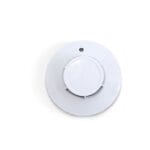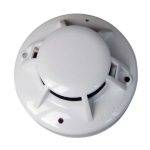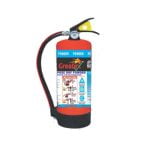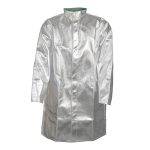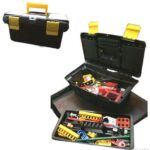Your list is empty, add products to the list to send a request
What is the Difference Between Fire Sensor and Smoke Detector?

13
May
When it comes to building safety and fire protection, understanding the difference between a fire sensor and a smoke detector is essential. These devices play a crucial role in early fire detection, but they function differently and are designed for specific applications.
At Firesupplies, we provide a wide range of fire detection solutions that help safeguard lives and property. Whether you’re managing a commercial facility, industrial unit, or residential complex, knowing which fire detection system to install can make all the difference in an emergency.
Fire Sensor vs. Smoke Detector: Key Differences
While both devices are essential components of a fire alarm system, here’s how they differ in function and design:
Fire Sensors
Fire sensors are general-purpose devices designed to detect the presence of fire by sensing one or more of its indicators — such as heat, flames, or gas emissions.
Types of fire sensors include:
- Flame detectors – Sense infrared or ultraviolet light emitted by flames.
- Heat detectors – Detect changes in temperature due to a fire.
- Gas detectors – Identify gases like CO (carbon monoxide) or CO₂ released during combustion.
Fire sensors are usually installed in high-risk areas where open flames or high heat levels are expected, such as industrial kitchens, server rooms, or chemical storage units.
Smoke Detectors
Smoke detectors, on the other hand, are specifically designed to detect smoke particles in the air — usually the first sign of a fire.
Common types of smoke detectors:
- Ionization Smoke Detectors – Best for detecting fast-flaming fires.
- Photoelectric Smoke Detectors – Ideal for detecting slow-smoldering fires.
- Multi-sensor Smoke Detectors – Combine multiple detection technologies (like Honeywell TC840M1021) for better accuracy and fewer false alarms.
Smoke detectors are commonly used in homes, offices, schools, and public buildings, and they play a key role in providing early warnings before a fire grows.
Explore our best-selling multi-sensor smoke detector: Honeywell TC840M1021
Why It Matters: Choosing the Right Fire Detection Device
Choosing between a fire sensor and a smoke detector depends on the risk profile of the area you are securing.
Use a fire sensor if:
- You’re dealing with rapid fire-prone environments.
- You need to detect gases or high temperatures early.
- Your location has open flames or flammable substances.
Use a smoke detector if:
- You want early warnings for slow-burning fires.
- You’re securing residential or commercial spaces.
- You need a cost-effective, reliable detection system.
For optimal protection, a combination of fire sensors and smoke detectors is often the best approach.
At Firesupplies, we specialize in sourcing the highest quality fire and gas detection systems from globally trusted brands like Honeywell. We are proud to support building managers, engineers, and safety officers with not only world-class products but also expert consultation and support.
Our customers trust us because we deliver:
- High-grade certified safety products
- Fast shipping across India
- Affordable prices
- Unmatched customer service
FAQs: Fire Sensor vs. Smoke Detector
1. Is a smoke detector a sensor?
A: Yes. A smoke detector is a type of sensor specifically designed to detect smoke particles in the air. It triggers an alarm when smoke reaches a certain density, indicating a potential fire.
2. What is the temperature of a smoke detector?
A: Most heat-activated smoke detectors are set to trigger at temperatures around 135°F to 190°F (57°C to 88°C). However, photoelectric and ionization detectors detect smoke, not temperature.
3. What is the temperature of a smoke detector?
A: Most heat-activated smoke detectors are set to trigger at temperatures around 135°F to 190°F (57°C to 88°C). However, photoelectric and ionization detectors detect smoke, not temperature.
Ready to Upgrade Your Fire Safety System?
Explore our wide range of fire detection products today and protect what matters most. Visit Firesupplies or talk to our experts for guidance on selecting the right fire safety solutions for your property.
Protect your space with smart fire detection – shop now at Firesupplies!




